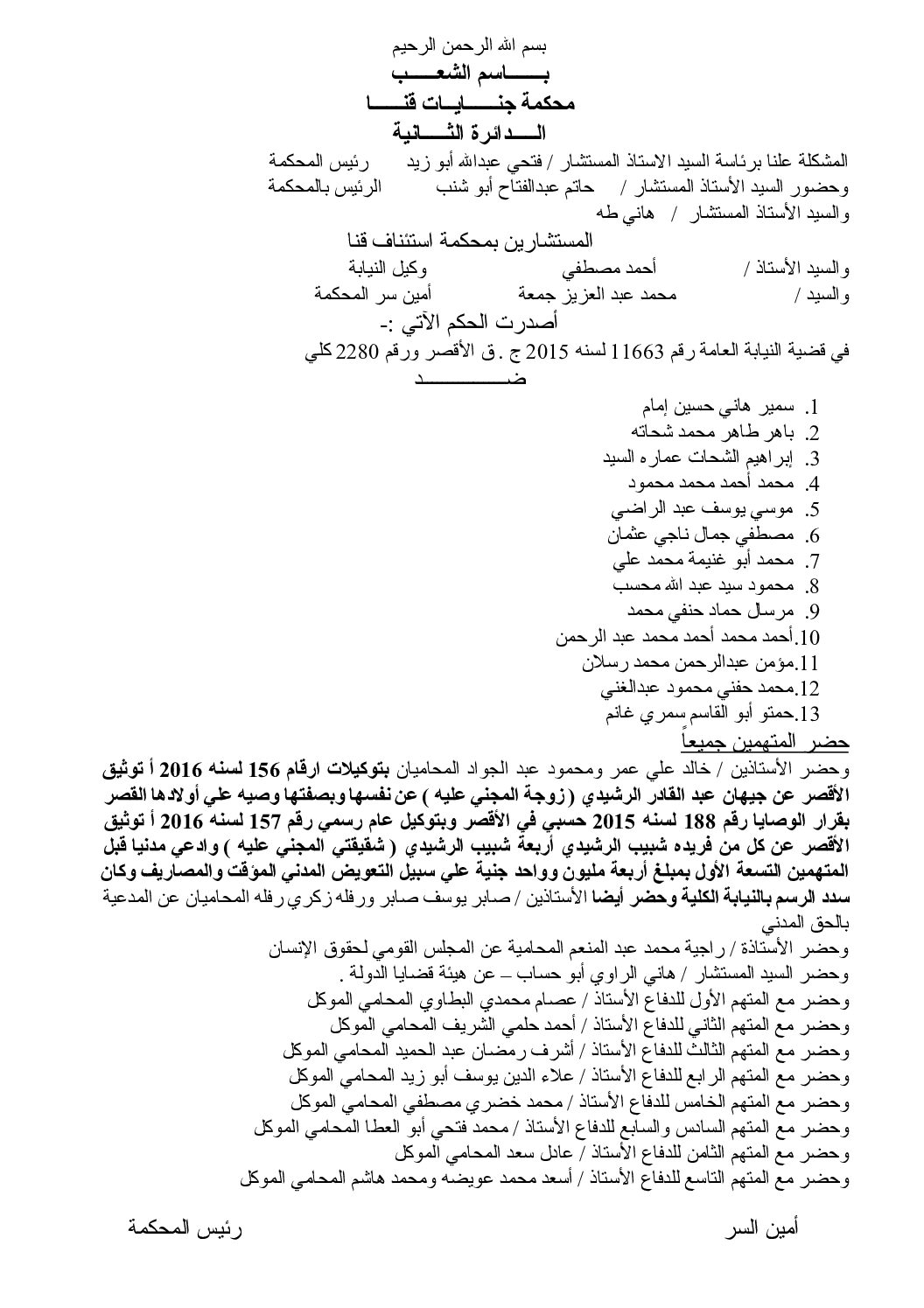Debt & Development | ECESR Strongly Criticizes EBRD During the Bank’s Annual Meetings

Through its participation in the European Bank for Reconstruction and Development (EBRD) Annual Meeting, ECESR has raised several key issues during the annual event which lasted 4 days last month in the Polish capital; Warsaw.
On top of these issues was the role of EBRD in financing Use of Coal in cement industry in Egypt, an action which was faced with a popular outcry and severe opposition from civil society.
The following article presents the key points discussed by ECESR’s representative during the annual meeting.
The Introduction of Coal to Egypt and EBRD Role
On the Gas to Coal Switch in Egypt and the EBRD Role in it:
Hildegard Gacek, Director of the SEMED region at EBRD had met with Egyptian Minister of trade and industry, Mounir Fakhri Abdelnour, on December 10th, 2013, discussing Egypt’s gas-coal switch and the EBRD’s role in investing in it[i]; a quite controversial topic for its environmental, health, and economic detrimental effects, discussed in detail with EBRD staff, and that has fueled public concern and discontent.
Public Discontent: Court Case, Ministries and Governors Oppose, as well as CSOs
The Egyptian Center for Economic and Social Rights has filed a lawsuit in the Administrative Court of Egypt to revoke the Cabinet’s decision of importing coal for power generation, especially the minster of environment who has formulated a position against this policy is to testify on May 10th, 2014 before the court and ECESR lawyers. Additionally, a civil society and a popular coalition in the name of “Egyptians against coal” has embarked on a campaign against the policy over 6 month ago. The Coalition and the Center as well as other regional and int’l NGOs have been corresponding with Bank staff and directors on the matter, and would like to discuss further in option to voice our concern and assessment of wherein this policy neither meet the EBERD’s, the EU’s, nor other leading IFIs and Int’l Financial Institutions minimum standard of sustainability, in fact quite the opposite.
Gas-Coal Switch: a Flawed Process, Lacking Public Legitimacy, Putting EBRD Values into Question:
As EBRD calls itself the “ Transitional Bank”, it decided for itself 14 working principles on democracy and good governance according to which its operations as a public bank can be assured to meet developmental goals; both economic and political development.
Unfortunately, if EBRD is to invest in coal in Egypt, with the current circumstances wherein there is no parliament in place for over two years, those most affected stakeholders, the people of Egypt, have no venue for expressing their opinion nor having a say in such a policy that shall have detrimental effects on their health and their living all together, rendering such a move illegitimate, and regressive to the pathway of democracy and rule of law which the Bank takes as the first principle to its own AOE (see Annex I Art.1 of AOE of the EBRD).
Not only that representative democracy is absent in the last two years following a popular revolution calling for democracy and social justice, the right to protest has been stripped away from Egyptians, as demonstrations have been banned, and severely punished through the law 107 year 2013 established by a presidential decree, in the absence of a legislator. Under this law, a group of young political activists have been fined with 50,000egp and sentenced to 2-3 years of imprisoned.
Ignoring Alternative:
If EBRD is to contribute seriously to solving the energy crisis in Egypt, there are several alternatives that could be considered. Exploring clean and renewable energy that is under-used in Egypt yet of great potential like wind, and solar energy as one. A long term alternative would be investing in making available the natural gas reserves that exist in Egypt and are not explored[ii].
Another alternative is increasing the refining capacity of Egypt. Instead of exporting crude oil at large quantities, and importing it back at higher prices in form of fuel[iii], now becoming difficult at time the current time of financial crisis, investing in the increasing the operational capacity of oil refineries, while abiding by highest standard of social and environmental safeguards, could help the country recover it’s from the energy crisis in 2010[iv]. One additional solution would be investing in studying waste as a source of energy, which Egypt already exports in large amounts, and uses for energy in one plant in Egypt. There exists however high reservations to the use of RDF or WDF before cement factories and other industries develop sustainable selective practices before using this alternative, as well as before the need for the state to develop regulatory legislative as well as technical and environmental frameworks needed for such an alternative to be used effectively is invested in and properly met, so as not to lead to hazardous results.
[i] Ministry of Industry and Foreign Trade Egypt . http://www.mfti.gov.eg/reports/press_release.asp?Id=2357[ii] “Israel-Egypt Gas Export and the Energy Crisis”. Africa Research Bulletin: Economic Financial and Technical Series. 49:4. 4 June 2012. http://onlinelibrary.wiley.com.library.aucegypt.edu:2048/doi/10.1111/j.1467-6346.2012.04497.x/full
[iii] U.S. Energy Information Administration. Egypt Report. P.6 July 31 2013. http://www.eia.gov/countries/cab.cfm?fips=EG
[iv] Soloviava, Daria. “Why is Egypt Importing Natural Gas”. Egypt Oil and Gas Portal. . 8 Dec 2013. http://www.egyptoil-gas.com/read_article_issues.php?AID=623

